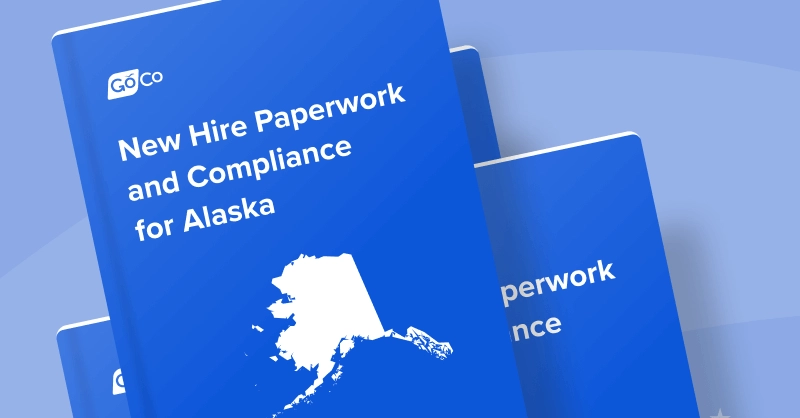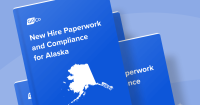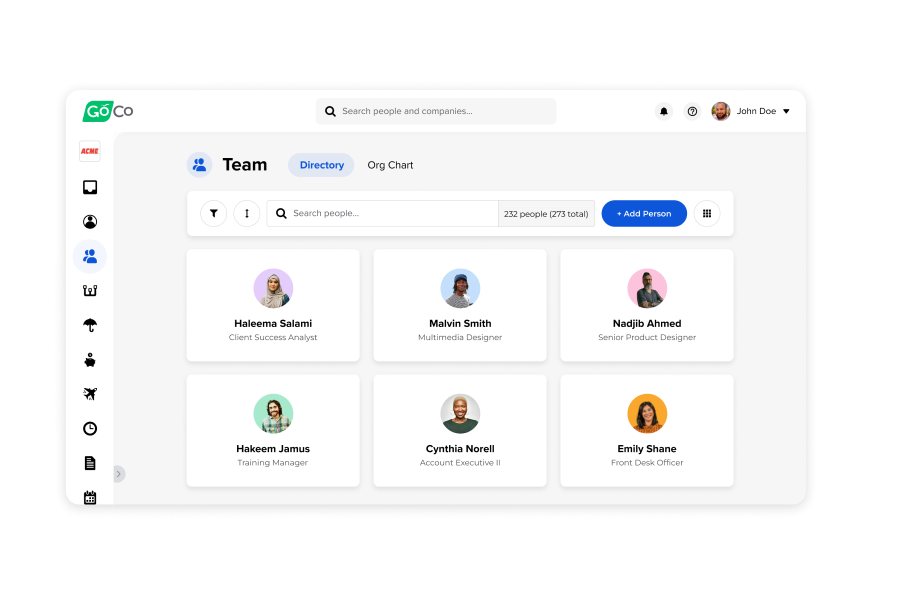New Hire Paperwork and Compliance for Alaska
This guide explains onboarding paperwork in Alaska, shows you how to navigate new hire reporting, and shares best practices for getting your new hires ready to shine.
by Anna Coucke - April 17th, 2024
You just hired a new addition to your team – congrats! However, after they’ve signed the offer letter, there's still a lot of paperwork to tackle. For Alaska employers, there are specific requirements to complete to ensure a smooth onboarding experience.
This guide is your secret weapon to conquering Alaska new hire onboarding. We'll break down the essential paperwork, show you how to navigate Alaska’s new hire reporting, and share best practices to get your new hires up to speed and ready to shine.
Download The Ultimate Onboarding Checklist
Mandatory New Hire Paperwork in Alaska
In every state, including Alaska, employers must complete mandatory paperwork when hiring new employees. These documents are essential for tax reporting, verification, and employment records.
Let's take a closer look at these forms and how to complete them correctly during the onboarding process.
Form I-9 (Employment Eligibility Verification)
U.S. Citizenship and Immigration Services (USCIS) requires Form I-9 in order to verify the identity and employment eligibility of all new hires.
Section 1 must be completed by employees on their first day of work, and Section 2 must be completed by employers within three business days.
Form W-4 (Employee's Withholding Certificate)
This form is issued by the Internal Revenue Service (IRS) to determine how much federal income tax is to be withheld from each paycheck.
New hires must complete this form to specify their withholding allowances, which affects the amount of federal income tax deducted from their pay.
Since Alaska does not have an individual state income tax, employees only have to complete the federal W-4.
Alaska Employer Requirements
New hire paperwork isn't the only aspect of new hire compliance. Before beginning to hire employees, employers in Alaska must fulfill some additional requirements.
Employer Identification Number (EIN)
In every state, employers must obtain a federal tax ID from the IRS, also known as a Federal Employer Identification Number (FEIN), before beginning to hire employees. Alaska employers must also apply for a separate state employer identification number through the myAlaska online portal.
Alaska New Hire Reporting
The state of Alaska requires employers to report all new hires and rehires employees to the state Department of Revenue within 20 days. Employers can report electronically through the myAlaska website portal.
This report requires the following information:
Employee name
Employee address
Employee social security number
Employer name
Employer address
Employer Federal Tax ID number
Compliance with the New Hire Reporting Program is required, and employers who fail to report new or returning employees can face penalties and legal consequences.
Best Practices for Onboarding Employees in Alaska
Now that we’ve covered the federal and state requirements for new hire onboarding paperwork, let’s cover some of the additional key areas to consider when hiring new employees in Alaska.
Pre-Employment Screening
Conducting thorough background checks, reference checks, and drug testing (when necessary) during the hiring process will help ensure that your new employees are qualified.
If your organization conducts these checks, be sure to follow federal and state regulations (outlined below) to avoid possible discrimination and privacy concerns.
Equal Opportunity Employment
Ensure that your organization upholds equal opportunity practices and avoids discrimination based on race, color, religion, sex, or national origin in hiring and employment. Familiarize yourself with federal and state anti-discrimination laws including the Fair Credit Reporting Act (FCRA), Federal Equal Employment Opportunity (EEO) laws, and Alaska’s Equal Employment Opportunity (EEO) Program.
Employee Classification
It is vital that you accurately classify your employees as exempt or non-exempt, as misclassification can lead to potential legal repercussions and financial penalties. If you are unsure about classifications, be sure to consult with legal counsel or the FLSA.
Employee Handbook and Policies
Many companies create their own employee handbook that outlines company policies, procedures, and employee expectations. This should be distributed to all new hires along with confirmation that the employee has read and understands the information and policies in the handbook.
Record Keeping
Once a new hire is successfully onboarded, be sure to maintain accurate, up-to-date records of all employment-related documents, including applications, offer letters, I-9 forms, and W-4 forms. Be sure to comply with federal and Alaska state laws regarding employer recordkeeping.
By following these best practices, Alaska employers can establish a compliant and efficient hiring and onboarding process that is easy for everyone to follow.
How GoCo Supports Alaska Employee Onboarding
Now that you're familiar with the fundamentals of onboarding new hires in Alaska, you might be considering ways you can streamline your onboarding process.
A modern, all-in-one HR software solution empowers employers with increased confidence in their hiring and onboarding compliance by keeping everything organized and automating mundane tasks.
GoCo simplifies state-specific hiring in Alaska by staying on top of current and evolving regulations for paperwork, reporting, and other legal requirements. Additionally, our user-friendly onboarding software makes the entire experience a breeze for both employers and new hires.
Want to see it for yourself? Take a free tour of GoCo today and see how we can transform your onboarding and other HR processes — including performance management, time tracking, and much more!
Recommended Posts
How to Rehire an Employee in 2025 [+Checklist]
Blog Articles
Search...
Product
GoCo
Resources
Articles
eBooks
Webinars
Customer Stories








![How to Rehire an Employee in 2025 [+Checklist]](/img/containers/assets/goco/featured_images/posts/how-to-rehire-an-employee.png/676fec2d0a81bbd094e73210d84dbaf7/how-to-rehire-an-employee.png)